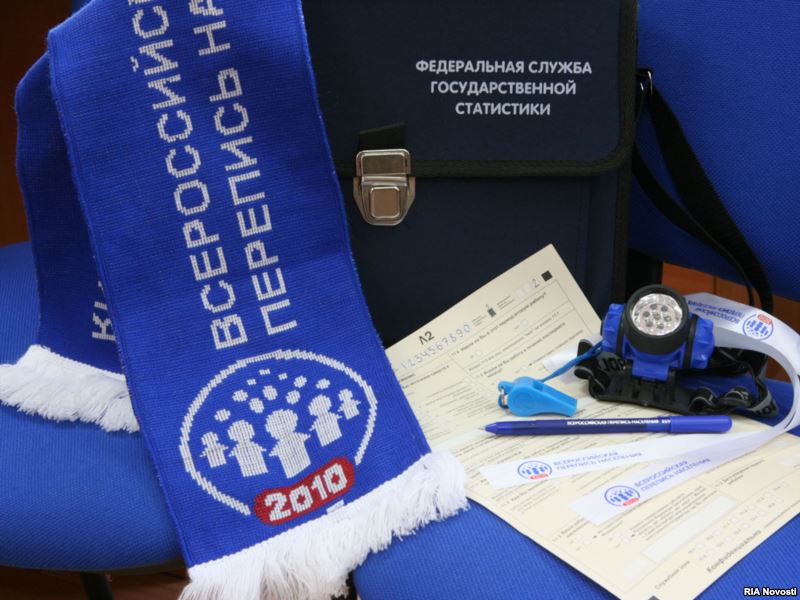
Will Siberian Tatars Finally Win Recognition as a Separate Nation?
Publication: Eurasia Daily Monitor Volume: 10 Issue: 110
By:

Just as was the case in Soviet times, ethnic groups in the Russian Federation have a chance to gain some collective benefits only if they receive official recognition by the state. But the process of obtaining such “official” status is one in which the players and their arguments for and against are typically hidden from public view. Now, a Moscow scholar has described what has occurred over the last two decades as the Siberian Tatars have sought recognition as an official nationality in the Russian Federation.
In an article in the current issue (2013) of the Moscow Institute of Sociology journal, “Istoriya is sovremennost,” L. A. Shamsutdinova describes the interaction of Moscow authorities, regional officials and Siberian Tatar activists on the question of the group’s status within the country. Whether or not the Siberian Tatars can be considered a separate “official” nationality within the Russian Federation has not yet been resolved, but it highlights a problem that many of the smaller nationalities in that country still have—Moscow again, just as in Soviet times, wants to decide which groups are “officially” nationalities and which ones are not.
The Siberian Tatars, as Russian ethnographers and linguists have documented since at least the 1950s, are a distinct group, with their own ethnogenesis—they descend from the Siberian khanate rather than the Kazan one. Their language is very different from Kazan Tatar. And they have their own national consciousness—they organized themselves in the late 1980s and have remained active as a national group since that time. But they present distinct problems for Russian officialdom.
On the one hand, they are relatively few in number—6,779 individuals, according to the 2010 Russian census—and are subject to assimilation by both other Tatars and ethnic Russians. Moreover, their numbers have been declining—again, subject to assimilation by both other Tatars and ethnic Russians (etnosib.ru/index.php?option=com_zoo&task=item&item_id=83&Itemid=3). Currently, they live in various urban areas of Siberia rather than in a concentrated rural location as do most ethnic groups seeking official recognition, making it difficult for regional officials to treat them territorially, which is the usual pattern in Russia and something Siberian Tatar leaders clearly want.
On the other hand, Siberian Tatars are often lumped together with the far larger number of Kazan Tatars living east of the Urals—more than 200,000, according to the 2010 enumeration. Such an arrangement pleases Kazan because it boosts the number of the second largest nationality in the Russian Federation. Separating the two Tatar groups would reduce the importance of Kazan in the Russian political system.
One recent article about the Siberian Tatars noted that during perestroika, the national self-consciousness of this community took off. In 1988, some of them established a Committee for the Rebirth of the Siberian Tatars in Tyuman. In September 1990, its members, in turn, set up an Association of Tatars of Tyumen and began to campaign for the creation of national districts, something that the authors of the article said was “partially supported” by the Tyumen officials of that time. And in August 1991, that association appealed to Moscow to be included in the official list of peoples of Siberia (https://tatar-history.narod.ru/sibir-tatar.htm).
As the authors of that article note, “the term ‘rebirth’ should be applied above all to the indigenous Siberian Tatars” rather than to Kazan Tatars “who have moved into the region.” Moreover, they argue, “contemporary indigenous Siberian Tatars represent an independent ethnos with stable markers such as language, ethnic territory, ethnic self-consciousness, common religious faith, endogamy and, in the past, a social-political community connected with the Siberian khanate,” which fell to Muscovy 30 years after Kazan.
All that has been in the public domain for some time, but Shamsutdinova’s new article documents the back and forth between scholars at the Moscow Institute of Linguistics and the Moscow Institute of Ethnography, on the one side, and the leaders of Tyumen oblast along with officials at the Russian state statistical committee, on the other. Scholars at the two Moscow institutes have supported the Siberian Tatars’ aspirations. Whereas, officials of Russia’s statistical service as well as Tyumen authorities have opposed those aspirations, often on the basis of trivial or incorrect argumentation, according to Shamsutdinova.
She notes that over the last year, the Siberian Tatars have sought to go around these local officials and win support not only among Moscow scholars but also among Russian officials at the Federal Service of State Statistics, which oversees the Russian census and currently maintains the list of which nations are “official” and which are not.
“Considering all the responses,” the Tatar author concludes, “the positive ones […] can serve as the basis for showing that the Siberian Tatars are an indigenous people of Siberia, an independent ethnos with a high degree of self-consciousness.” But as her own article shows, the resources and willingness of other officials, especially at the regional level, to block such moves is enormous, and, consequently, it remains far from clear whether the Siberian Tatars will in fact win government recognition as an “official” nationality anytime soon.




